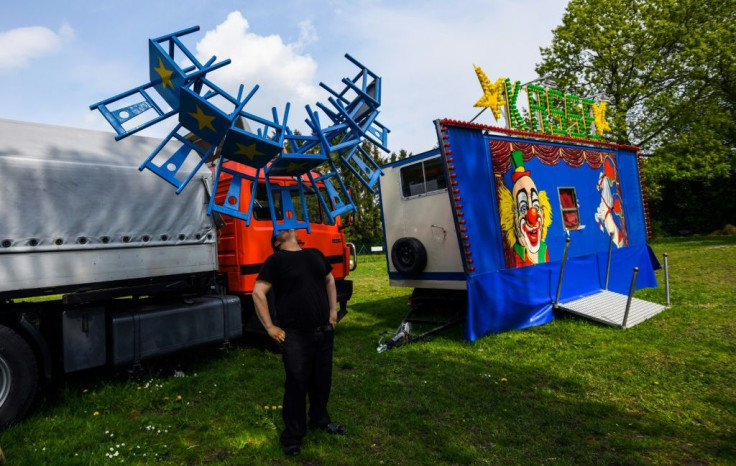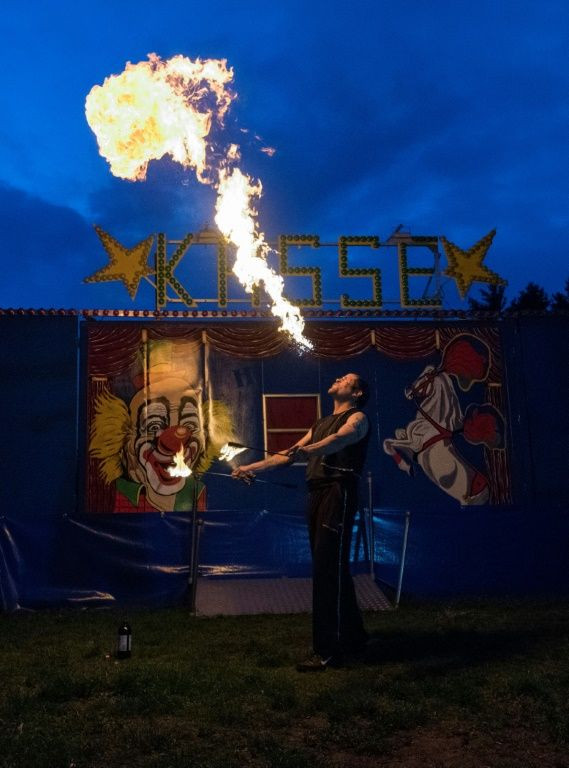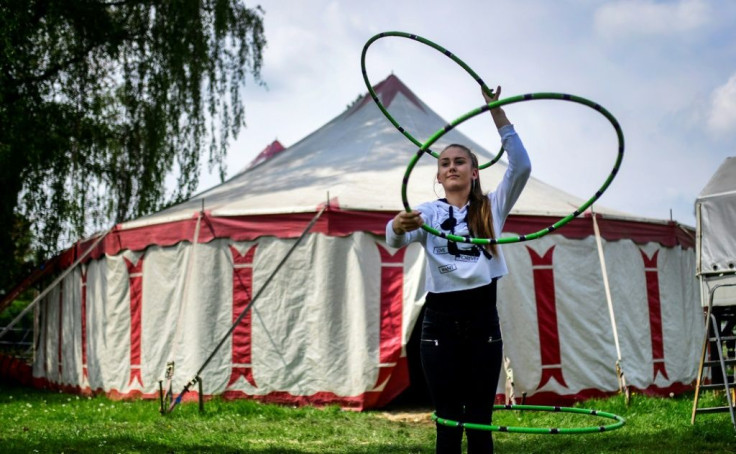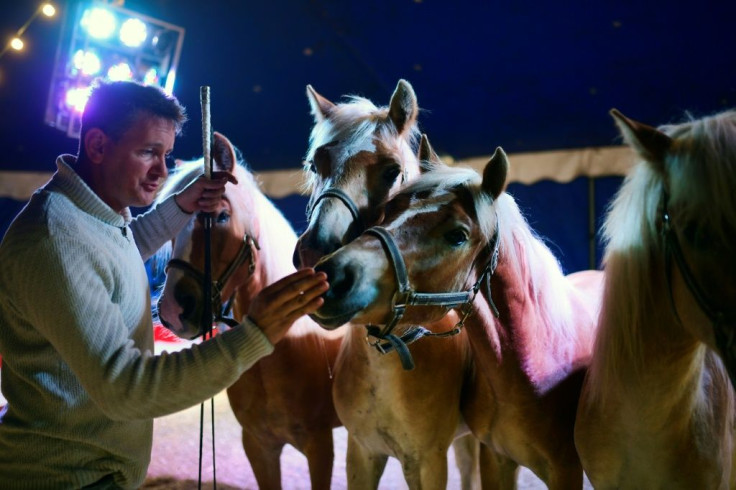Stranded German Circus Faces Uncertain Future
On a normal Thursday afternoon, Josef Traenkler would be pulling on his clown costume, sharpening his knives or grooming his horses for a performance.

Instead, the German entertainer is holed up inside a tent painting circus wagons with his brother.
Restrictions to slow the spread of the coronavirus in Germany have brought business to a grinding halt for Circus Altano, a family firm with 16 performers.

"We are not allowed to perform any more," the 44-year-old said. "So we're doing things now that we wouldn't have had time to do otherwise."

The big top -- along with its 20 horses, llamas, goats and dogs -- has been stuck since early March in a field in Muelheim an der Ruehr near Essen airport.
The team of knife throwers, fire jugglers and acrobats would usually move on at least every 10 days. Today, they were supposed to be somewhere in Saarland.

Traenkler is concerned that if the situation goes on much longer, there won't be enough money to keep feeding the animals.

"We don't have any gigs, and if there are no gigs we have costs that just can't be covered," he said.
"We have been getting food from local farmers and so on, and we always make sure we have enough, but if this goes on for a long time it will be more difficult."
As well as catching up on repair work and maintenance, the Circus Altano team are still practising for one to three hours a day.
The animals also need to be trained at least once every three days -- so they don't forget the routines, according to Traenkler.
But he's not sure how long they can carry on without any clear plan for the future.
"If you're a hairdresser or a shop, the restrictions are lifted and you can just open again. But we have to plan weeks in advance."
And if social distancing continues to be mandatory in Germany, Traenkler fears the worst.
"We usually perform to audiences of around 50. If half of those people are missing, because they are afraid to come or not allowed to come because of the danger of infection, that would be an economic disaster for us. We could not exist on that."
© Copyright AFP 2024. All rights reserved.




















